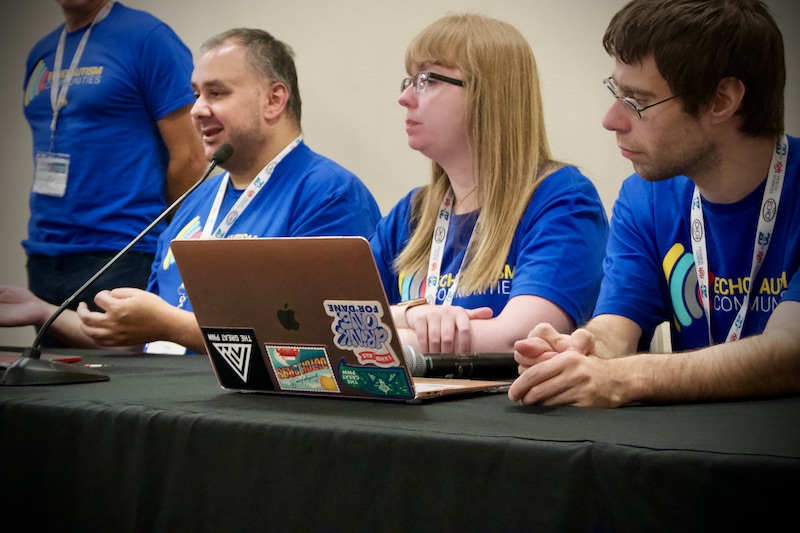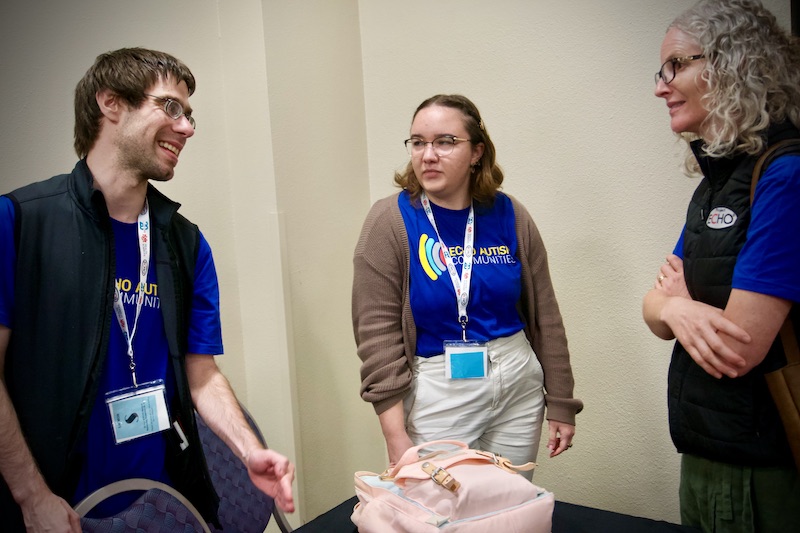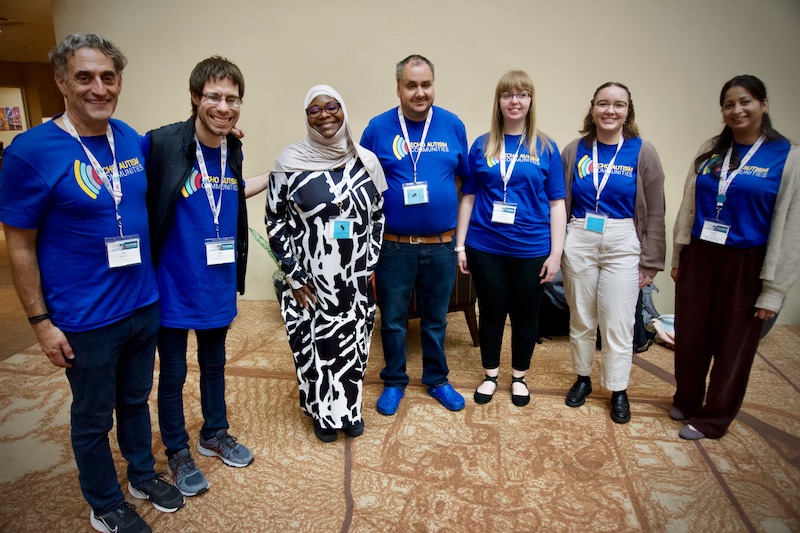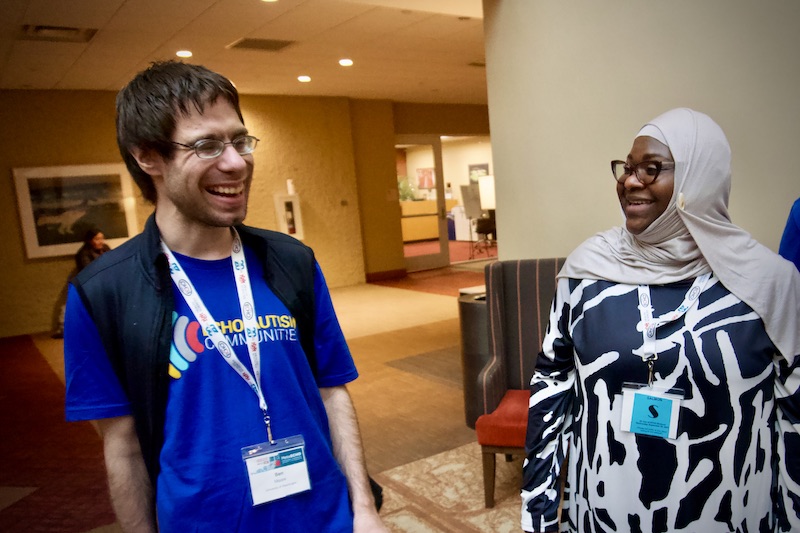“It is really important to have lived experience at the table,” says Ben Moore, self-advocate faculty for the ECHO Autism Hub at the University of Washington, adding: “Pull us in.”
Ben is part of the team of self-advocates who teach, advise and develop programs at the University of Washington. These ECHO Autism communities are the first ECHO programs to regularly include people with lived experience on ECHO sessions as equal experts and teachers to other providers.
As Dr. Kristin Sohl, founder of ECHO Autism, notes, “Just this year, we also added our first provider who also has autism herself. This is what changes paradigms of care.”

Left to right: John Lemus, Sydney Kresbach, and Ben Moore, self-advocates, answer questions after their panel at the 2023 MetaECHO Conference in Albuquerque, New Mexico. Credit: Sarah Helms, Project ECHO, September 2023.
A New Type of Teaching
The self-advocates are integral to every aspect of the ECHO session; they correct misinformation, present case information, and provide nuanced recommendations on medication and familial issues.
By including the self-advocate perspective since 2015, ECHO Autism demonstrates the value of insight that comes from lived experience and emphasizes the ECHO Model’s “all teach, all learn” approach. “Say we are in a session and have a case with an eight-year-old child,” says Ben, “I find myself going back into my memory: ‘Did that ever happen to me?’ I’m able to provide perspective on how a person might feel.”
“I do this work with Project ECHO because I want people with disabilities to live in a better world,” says John Lemus, another self-advocate. “I’ve presented at sessions on neurodiversity, communication, and supporting non-speaking individuals. It’s a different perspective than they would get from non-autistic peers.”
“Helping people with disabilities is framed as a struggle or an inconvenience, not a way of life. So we need to do more,” he adds.

Autism self-advocates Ben Moore and Sage Davis highlight the importance of self-advocate work during the 2023 MetaECHO Conference. Credit: Sarah Helms, Project ECHO, September 2023.
Changing Perspectives, One Clinician at a Time
At the most basic level, the autism self-advocates disrupt traditional hierarchies around which perspectives should influence patient care. They address the unknowns and misunderstandings clinicians may have around autism: how it works, how it presents in concurrence with other conditions, and how it may be impacting families.
Sydney Krebsbach, who has been one of the ECHO Autism self-advocates for four years, sees their impact in how providers interact with their patients living with autism. “They learn more about what it is really like to move through the system,” she says, referring to the factors that impact life outcomes: access to services, health challenges, and the struggles that come with living in an ableist health care environment.
One of the biggest and most immediate drivers of change is language. “In the past, when we would have these case studies, the way that people would talk about people with autism was, in my opinion, degrading,” says Ivanova Smith, advocate discipline lead. “We really try to educate on language, talking about the person and the family in a way that’s respectful.”
Ben offered a specific example of why accuracy and respect matter: “It jumps out every time a presenter uses a term like ‘high-functioning’ or ‘low-functioning.’ We don’t actually use ‘functioning’ this way because—for a person with autism—your level of adaptability, of functioning, changes every moment of every day. That was a big one to address over time.”
A Vision for Systemic Change in Autism Care
The advocates aim to change how families and providers envision care. Ivonava, who was non-verbal until age five, explains: “I remind people that we really need services that acknowledge people with intellectual disability as having a full lifespan. People with intellectual disabilities do grow up; we become adults. And we need to be prepared for adulthood.” She is now married with two children.

Members of the University of Washington ECHO Autism team are part of the first ECHO program to regularly integrate self-advocate perspectives. Credit: Sarah Helms, Project ECHO, September 2023.
ECHO Autism self-advocates exemplify why “all teach, all learn” is a core part of the ECHO Model – and a principle that has room to grow. “When we started joining sessions as self-advocates, people would ask questions like, ‘Is this work even real?’” says Sydney. “We would always say, ‘Yes, this [being a self-advocate] is a real job. We are living our degree, and we are passionate about advocating for other people with autism.”
To learn more about ECHO Autism at University of Washington, email the ECHO Program team or visit their website.
Featured Image: Ben Moore, self-advocate, on left, and a member of the ECHO Autism Communities team. Photo Credit: Sarah Helms, Project ECHO, September 2023.

